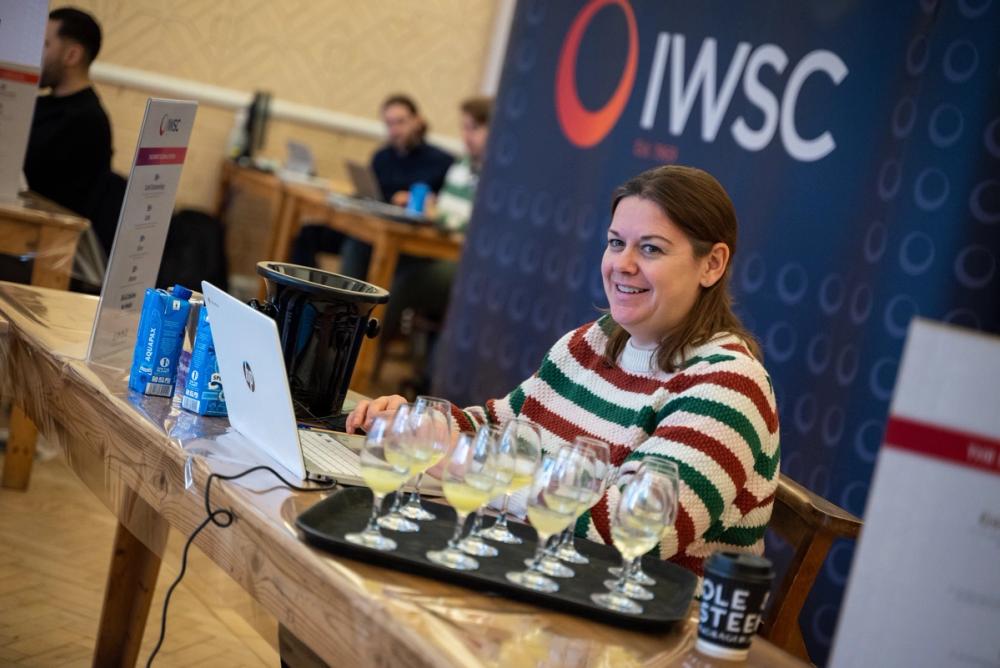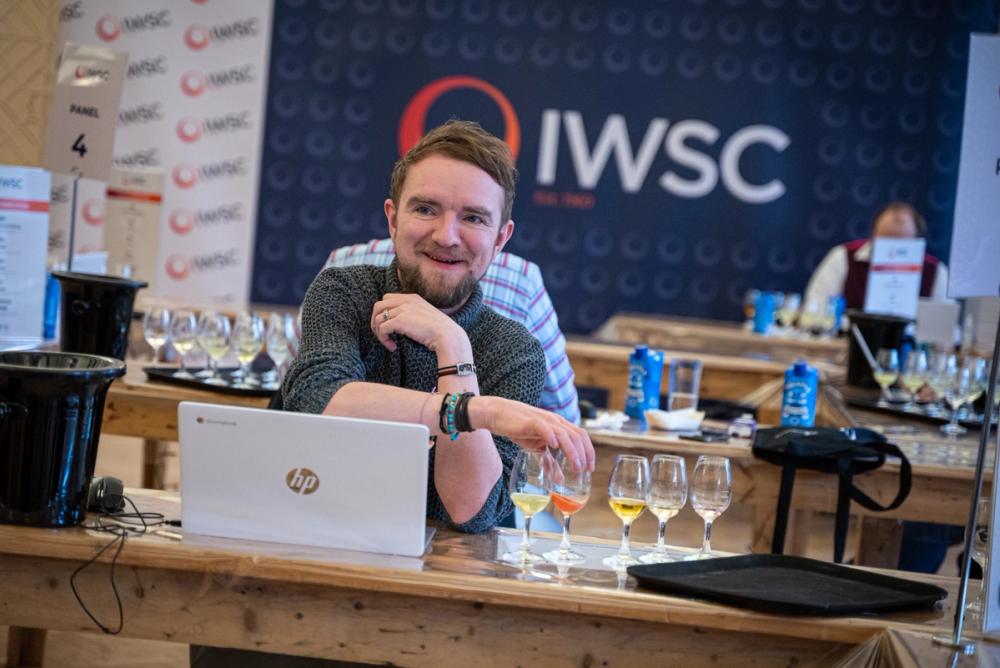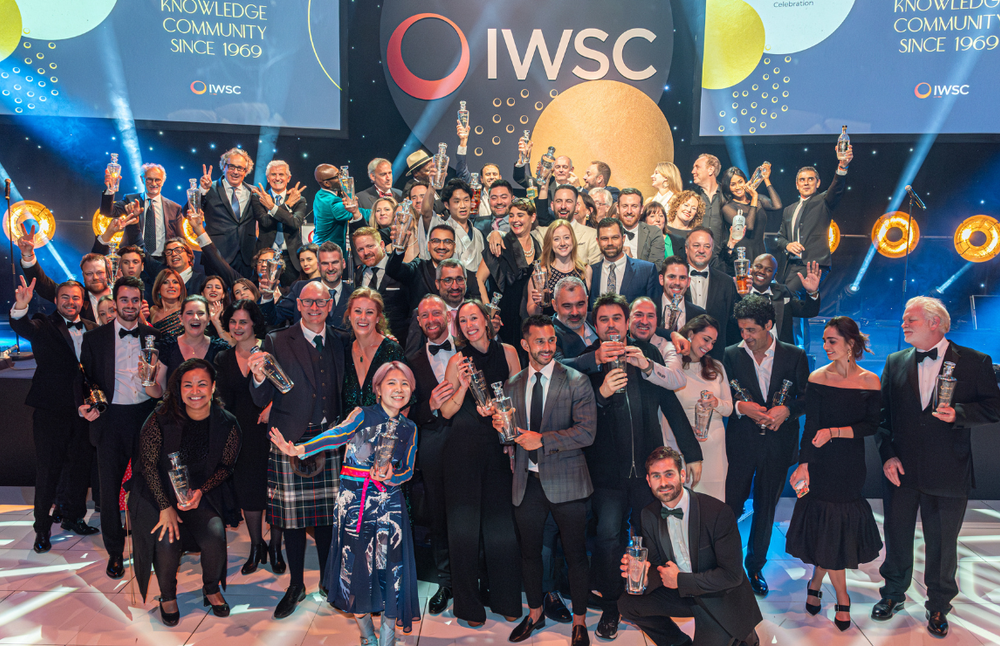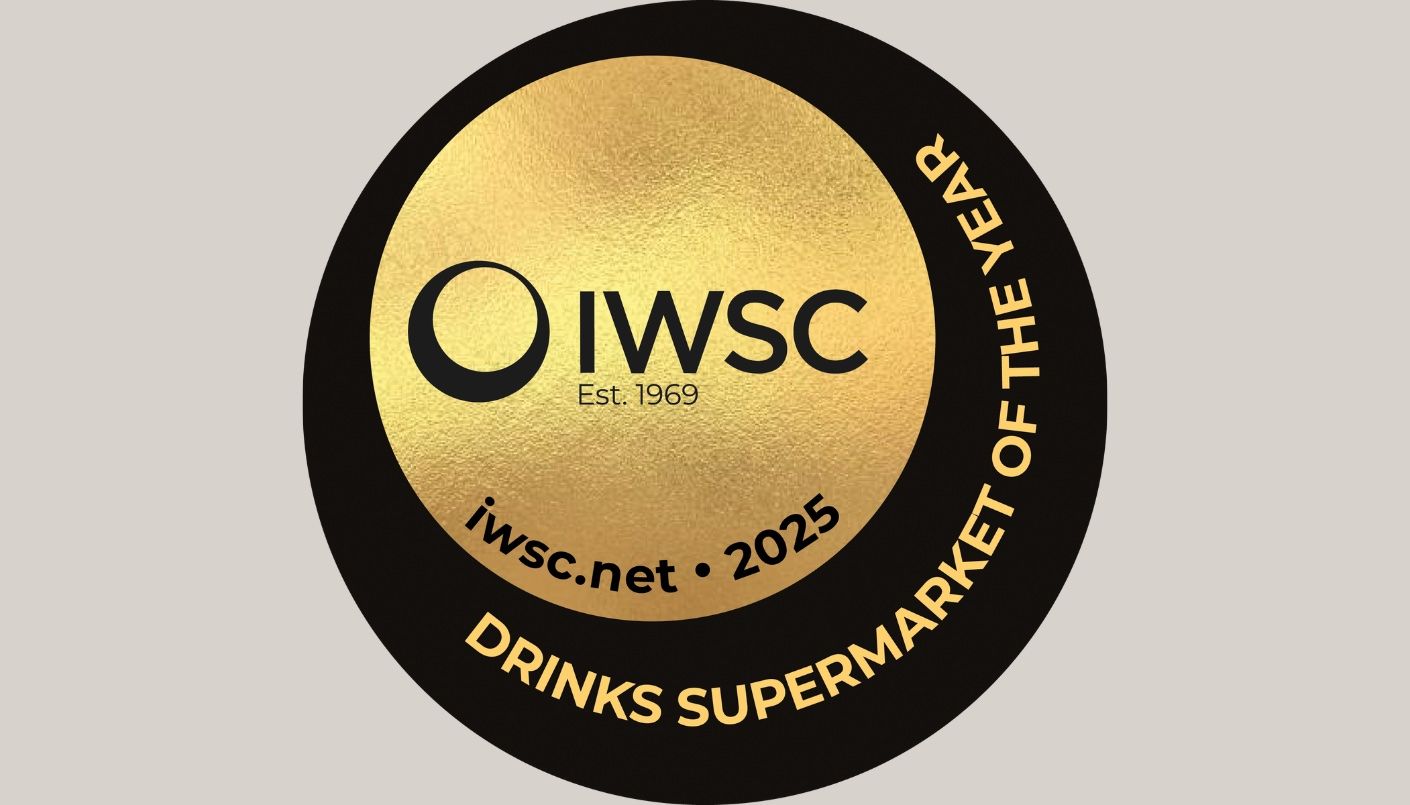The new look IWSC Drinks Supermarket Awards claims it will "set the gold standard of excellence in large-scale drinks retailing".
Rather than entering the awards the IWSC has pre-selected the supermarkets it will be judging. It says: "The selected supermarkets will have to demonstrate how they stay on top of consumer trends, whilst maintaining profitable drinks strategies, staying in tune with their suppliers and have sustainability at the heart of everything they do."
As it says: “This multifaceted approach ensures our awards will commend supermarkets that excel beyond sales figures, making a significant, positive impact on the development and thriving of the entire drinks industry.”
To do that it has broken down the judging process into six key areas:
- Range, quality and innovation.
- Commercial performance and strategy.
- In-store experience.
- Online experience.
- Trade and consumer engagement.
- Extra, value-add services.
The retailers selected by the IWSC will take part in face-to-face interviews with key members of the team, as well as the judging panel conducting ‘secret’ shoppers visits to stores to fully assess key aspects of the consumers’ shopping experience in the beer, wine and spirits (BWS) department and beyond.
The IWSC Drinks Supermarket Awards are split across six categories with an overall winner named the IWSC’s 2025 Outstanding Drinks Supermarket of the Year. The individual categories are:
- Classic Supermarkets.
- Convenience Supermarkets.
- Discounters.
- Regional/Specialist Supermarkets.
- Online Supermarkets.
- Rapid Grocery Delivery Category.
- Sustainable Supermarket.
Any awards programme is only as good as the businesses that enter and the people who judge them and for its new Drinks Supermarket Awards the IWSC has pulled together the following judging panel:

Cat Lomax has had a number of senior drinks buying roles
- Cat Lomax who has held prominent buying and senior trading roles across key premium wine retailers in the UK market including Laithwaites, Waitrose, Majestic, and most recently Marks & Spencer.

Anne Jones has extensive supermarket experience
- Anne Jones has spent two decades at the forefront of UK wine retail with Waitrose and now runs a drinks sustainability consultancy, Limestone & Jones, adding value through sustainability and understanding the impact of individual actions and harnessing the power of collective action.

Respected former BBC journalist David Kermode
- David Kermode, former BBC and ITN news journalist and producer is now a prominent drinks writer contributing to most major titles including The Buyer. A key member of the IWSC judging team he also hosts The Drinking Hour podcast on Food FM and is a regular drinks contributor on his local BBC radio station.

Ivan Dixon has worked for major retailers, suppliers and producers
- Ivan Dixon began his career in independent wine retail before moving to Harvey Nichols where he became head spirits buyer. He was also head of spirits at Enotria&Coe and is now a regular IWSC judge, drinks consultant and brand co-owner of Procera Gin.
Q&A with IWSC's Christelle Guibert
Here the IWSC’s chief executive, Christelle Guibert, explains just how the new awards programme is going to be run and why it has made the changes it has.
Why have you decided to change your judging process for your retail awards to this new far more interactive process?
Traditionally, the IWSC honoured supermarkets based on performance metrics and, more recently, through application forms completed by the supermarkets themselves. This method depended heavily on the information supermarkets provided, which we felt might not always reflect the true consumer experience. To address this, we shifted to a more interactive and transparent judging process.
To spearhead this new framework, we brought on Cat Lomax, a renowned expert in the retail sector. With her extensive background at Laithwaites, Waitrose, Majestic, and Marks & Spencer, Cat was pivotal in designing a comprehensive, step-by-step judging process. Additionally, with her expertise in sustainable practices, Anne Jones contributed to integrating sustainability as a component of our criteria.
The essence of our new approach is to assess supermarkets primarily through the eyes of the consumer. This means moving away from reliance on self-reported data by the supermarkets and towards a more dynamic evaluation that captures the real-world shopping experience. By doing so, we aim to ensure that our awards genuinely reflect quality and value, offering a more meaningful endorsement to consumers.
You are looking to judge different formats of supermarkets in six categories - how did you decide to break it down in that way and choose those six key criteria?
Recognising the diversity within the supermarket sector is essential, which is why we chose not to group all supermarkets into a single category for our awards. Different types of stores, from premium supermarkets like Waitrose and Marks & Spencer to convenience stores like Spar and Budgens, or discounters like Aldi and Lidl, each serve distinct customer needs and market niches. Comparing them directly wouldn’t do justice to their unique strengths and operational focuses.

The IWSC's Christelle Guibert says great pains have been taken to make the awards as fair as possible
To address this, we developed six key judging criteria that centre on customer experience, reflecting the varied nature of supermarket formats:
- Range, Quality, and Innovation
- Commercial Performance and Strategy
- In-Store Experience
- Online Experience
- Trade and Consumer Engagement
- Extra, Value-Add Services
To ensure a fair judging, we are evaluating supermarkets in six key categories: Classic Supermarkets; Convenience Supermarkets; Discounters; Regional/Specialist Supermarkets; Online Supermarkets; and the Rapid Grocery Delivery category.
Additionally, a Sustainable Supermarket award will be granted to a supermarket that has gone above and beyond in their quest to minimise their carbon footprint and improve their environmental credentials.
In terms of range, what are you specifically looking to judge supermarkets on?
When evaluating the range of drinks offered by supermarkets, our judges will specifically focus on products that are either new to the range or are own-label. This approach is strategic for several reasons.
Looking at all new products, both branded and private labels, allows us to comprehensively assess the quality and innovation of the supermarket’s drink offerings. Reviewing these products provides insights into how supermarkets respond to trends and consumer demands.
As for own-label products, these items are typically a priority for supermarket buying teams and serve as a key indicator of the store’s quality standards and brand aspirations. Evaluating own-label products helps gauge the supermarket’s commitment to offering competitive, high-quality options to consumers.
We will also take into consideration the supermarket performance at the IWSC judging, in terms of medal wins/ ratio of medals to entries.
How do you define quality in terms of a range?
We use several well-defined criteria to define the quality of a range.
Our judges will be looking at diversity of selection: this includes offering a variety of types, brands, and price points. From budget-friendly options to premium labels and from global favourites to niche products.
Another important aspect is consistency of stock: a quality range should be reliably stocked, with core items and popular choices regularly available.
We feel that it is also important to assess whether the supermarket’s range reflectsemerging trends and innovations in the beverage industry.
Another key aspect of a high-quality range is value for money –competitive pricing and ensuring that products meet or exceed the expectations set by their price points.
What aspects of a supermarket’s commercial performance will you be judging - year-on-year sales, profit margins per bottle, per square foot?

Who will be up for an award at the IWSC 2025 awards?
When assessing the supermarkets’ commercial performance, we will focus on both quantitative metrics and strategic initiatives.
The judges will be evaluating the supermarkets’ sales performance in terms of volume, value and average selling price over the last 12 months. Our team of experts will also look at the growth and the size of the customer base, as well as assess the promotional strategy, social media engagement, added value services and e-commerce dynamics.
An important strategic initiative that the judges will assess is sustainability and ethical sourcing. The judges will be checking how many products in each drinks category have a recognised sustainability accreditation, such as organic, biodynamic, fair trade and others.
What financial information will you expect supermarkets to share with you?
In evaluating supermarkets for our awards, we request specific factual and data-driven information essential for a fair and effective assessment but not breach confidentiality or commercial sensitivity.
How much will you assess a supermarket’s drinks performance vs the overall business and how will you do that?
We specifically evaluate the performance of the supermarkets’ beer, wine, and spirits (BWS) department, rather than the overall business.
You are carrying out store visits as part of the judging - how will you decide which stores in a company’s estate to visit?
Judges are tasked with conducting store visits to assess the consumer experience in a structured and consistent manner. Each judge will visit up to two stores from each supermarket they are assigned to evaluate. The selection of stores is based on the judge’s location and convenience, ensuring a feasible and unbiased assessment.
The types of stores to be visited include a large format store and a convenience format store.
A large format store will typically have extensive offerings and amenities, providing a comprehensive view of the supermarket’s capabilities in handling a wide range of products and services.
A convenience format store is a smaller, more accessible store that caters to quick shopping trips, so the judges will evaluate how well these outlets meet consumer needs for efficiency and convenience.
If a supermarket chain does not have both types of store formats within their portfolio (e.g. convenience supermarkets), judges will conduct a single visit to the available format.
What sort of factors will you be taking into consideration in the store visits?

The IWSC claims to be the oldest drinks competition in the world
To ensure a consistent and comprehensive assessment of supermarket stores, our judges will use a set of specific metrics designed to capture key aspects of the shopping experience in the beer, wine, and spirits (BWS) department and beyond:
The judges will check the availability of popular and advertised drinks, as well as whether the store staff is ready to assist customers with their queries in the drinks section.
One of the key metrics is in-store merchandising. Thejudges will evaluate how intuitively products are organised and how easy it is for customers to find what they are looking for.
It’s also important to assess the shelf-edge communication: does the information at the shelf edge help consumers understand product features, aiding in confident purchase decisions? And does the store engage with customers with additional information about drinks outside the BWS area?
Some other factors the judges will be evaluating include in-store promotional activities, availability of drinks outside the BWS department and added extras, such as tastings, special displays and others.
What factors will determine how you judge a retailer’s online experience?
When assessing a retailer’s online experience for our awards, we consider a range of factors that reflect the quality and effectiveness of their digital presence.
Online merchandising, meaning how well the website facilitates product discovery, plays a pivotal role in customer experience online.
The judges also focus on online communication, reviewing the clarity and completeness of product information online, as well as the clarity and appeal of online promotions.
Looking at delivery and logistics, our experts evaluate the flexibility, reliability, and options available for delivery.
It is also important to note the added extras – whether the online experience offers additional benefits not typically found in a physical store, such as exclusive online products, special online events, or advanced personalisation features.
Last but not least, the online stores will be reviewed in terms of the supermarkets’ commitment to sustainability. This includes how well they communicate their sustainable practices and offerings both in terms of individual products and broader business practices.
You are also conducting face-to-face interviews with key buyers from the retailers - why are you introducing this?
Introducing face-to-face interviews with key buyers from the supermarkets enriches our awards process by providing deeper insight into each retailer’s strategy and achievements. These interviews allow us to go beyond mere data, adding valuable context and personal perspectives to the numerical assessments of commercial performance.
We aim to bring a human element to our assessment by conducting these interviews, capturing the passion, innovation, and strategy behind the numbers. With the consent of each supermarket, we also plan to share these insights with the broader industry to foster a richer understanding of current trends and best practices.
Anything else you would like to say?
Our new awards feature a comprehensive 360-degree evaluation process, meticulously crafted by industry expert Cat Lomax, to ensure a focused and straightforward assessment of each supermarket. While the process might appear ambitious at first glance, it is underpinned by a detailed and robust framework designed to ensure consistency and rigour throughout the judging.
The judging process, which has already commenced, will span 12 months, culminating in an announcement scheduled for February 2025.
Additionally, our revamped awards will provide unmatched networking opportunities, bringing together key industry leaders and decision-makers across the supermarket sector. These interactions will enrich the awards experience and foster significant industry connections and insights.
- If you have any questions then please email marketing@iwsc.net. The results of the IWSC Drinks Supermarket of the Year Awards will be announced at the start of 2025, along with a comprehensive report on the IWSC website, ranking each supermarket within the six areas of the judging framework.






























